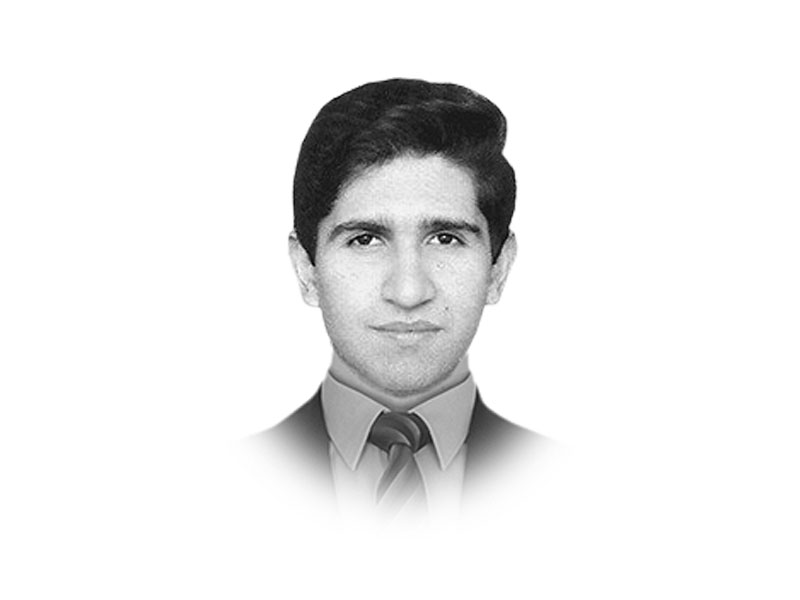
This demographic trajectory allows young Pakistanis to be swayed towards radicalisation and adds support for militant agendas from among the Pakistani populace, particularly when there is high unemployment and income disparity. This income disparity has manifested itself in the ratio of the highest to the lowest income quintiles ranging from 3.76 in 2001 to 4.15 in 2005, and further to 4.2 in 2005-06. Since poorer households in Pakistan tend to have a higher number of children on average, especially in rural areas, this implies that an exceptionally large number of young men and women are being forced to live below or around the poverty line. Furthermore, at least one tenth of the rural communities do not even have access to basic facilities, which adds incremental stress to an already overburdened economy. The children who come from these families are the ultra-poor who seem destined to have a grim future, particularly with regard to employment. The high level of underemployment for the young from lower socio-economic classes causes an escalating strain. While the growing economy has expanded the labour market and the unemployment rate has declined to around 5.32 per cent, the modest improvement cannot cope with the rapidly expanding youth bulge. This alienates the poor segment of the youth bulge, since the majority of non-elite young men can only find relatively menial, unfulfilling jobs. Since the richest 20 per cent of the population is continuing to grow richer, the sense of alienation among the poor young men is not surprising and forces them to look for other alternatives.
Radicalisation is one of the ways that the poor and the dispossessed find voice, since the path to radicalisation demands action to challenge the status quo, often in the form of violent activism. This violent action may become terrorism in its extreme manifestations, or smolder within the non-elite youth in the form of extremism. As research reveals, there are different trajectories to determinant variables of extremism and terrorism in different theatres. This may very well be the case in Pakistan where poverty, rather than educational attainment, may be a radicalising factor. It is also debatable that even employed persons may be facing crippling poverty in some areas of Pakistan, particularly the tribal areas. It seems that a majority of young men from rural backgrounds can only find relatively menial jobs. Over time, the private sector’s already constrained capacity to accommodate the youth cohort in employment is shrinking even more. Even though there has been some improvement in the macroeconomic structure of the country, it is inadequate to keep pace with the growth of the youth cohort, which is one of the largest in the world, assessed by international comparison of youth, including children, as a percentage of overall population. Either way, policymakers would avoid the socio-economy of youth radicalisation in Pakistan at their own peril.
Published in The Express Tribune, January 8th, 2013.
COMMENTS (11)
Comments are moderated and generally will be posted if they are on-topic and not abusive.
For more information, please see our Comments FAQ

1730360426-0/Menendez-Brothers-(2)1730360426-0-165x106.webp)
1732534556-0/taylor-(14)1732534556-0-165x106.webp)
1725872216-0/Tribune-Pic-(3)1725872216-0-165x106.webp)
1732532771-0/BeFunky-collage-(89)1732532771-0-165x106.webp)







@Mujeeb ur Rehman Nizamani:
Excellent post.
"Pakistan as a country faces the identity crisis since its inception and especially since 1971 this crisis started to manifest in more radicalised form, when Bhutto ironically banished Ahmedis from the fold of Islam. This was the point where religion became mouthpiece for the politics and we all know what followed since then. The text books being taught in schools till to date are the tools of that prevalent radicalization"
On this, I would add that Pakistan's identity crisis and radicalization started in 1947 and not 1971. When religion is used as the basis for dividing people and partitioning a country, one can't get away from religious dogmas and obscurantism from controlling the population's ethos and identity, As a consequence, religion would be used by the power brokers to control the minds of the population through brainwashing and propaganda.
This is a totally naive, misplaced and wrong analysis by the author.
" issues of terrorism and extremism do not arise merely from ideology, backward thinking and lack of education. Rather, the problems that Pakistan is confronted with arise from fundamental socio-economic and class inequalities, which have allowed the ruling classes to espouse, promote and encourage orthodox, rigid and fundamentalist versions of religion, as opposed to the more tolerant, peaceful ones that the dispossessed classes reflect"
Many polls have shown that over 78% of Pakistanis hold the view that strict anti-human Sharia laws that belong in the 14th century must be made compulsory. Moreover, most global terrorists have been from the middle class or rich Muslim groups. There are many countries that are dirt poor but the people there don't wage a global jihad like in Pakistan and other Muslim countries.
"As Pakistan redefined its identity by invoking the Arabian origins of Islam during the Afghan jihad heydays, the relatively more tolerant, syncretic and peaceful versions of South Asian religion have been increasingly replaced by harsh, literalist and bland versions of Arabian Islam amongst an extremist fringe."
While the author is correct in that the old Islam such as Sufism, practiced in South Asia, has been of the more benign kind, how can he dismiss the Arabian Islam as the extreme one? Sufism at its core has borrowed the mystical and philosophical aspects of Hinduism. So, how can he conclude that it is the correct Islam and that the Arabian Islam is the wrong one?
All this socio economic analysis is timid and off the mark. The young, old, rich and poor alike are raised on the belief of religious superiority. Hate towards non-Muslims is taught to one and all no matter which school they go to. The so called " moderates " have yet to come out in significant numbers to fight for the persecuted "others". Mind you it was a so called moderate PM who gave Pakistan its modern constitution that legalizes bigotry against non-muslims. It was the same PM and his country men in the West who refused to let a Bengali become the PM. In addition they supported the genocide that was to follow. The young of yesterday are teaching the young of today.
when our main slogan is Pakistan ka mutlab kya La-illaha-illalah, so basically we don't leave any space for anyone who doesn't adhere or belong to this kalima.
@ PakiKaKa I would beg to differ partially from what you've mentioned, the secularization in Europe emanated from the years of intellectual endeavour and scientific discoveries (we do not even consider Abdus Salam as our national prife) which could be pronounced as rationalism. One of major causes that led the population to mobilize against the church was due to blunt coercian of the church and its close alliance with monarchies. The 30 years war in 17th century that almost led to the european depopulation grossly alienated the poeple against church. Pakistan as a country faces the identity crisis since its inception and especially since 1971 this crisis started to manifest in more radicalised form, when Bhutto ironically banished Ahmedis from the fold of Islam. This was the point where religion became mouthpiece for the politics and we all know what followed since then. The text books being taught in schools till to date are the tools of that prevalent radicalization. In my opinion the few privilegd ones who go to schools are being systematically radicalized then those deprived who un/luckily didnt go to schools. To this i would say "Ignorance is bliss".
Ideology is main culprit . Socioeconomic conditions lead to crimes in the society , not terrorism . Terrorism occurs because of religious brain washing . You should remember that when you illegally defend something , you also involve urself in that crime and supporting this rouge ideology . If socioeconomic condition is a factor , then why USA,UK or France face Islamic terrorism and why relatively poor countries like some African countries and Asian countries don't face terrorism . Thousands of examples are there to cite .
@Feroz: It's your claims that are bogus. What proof or figures do you have to back your out of the blue statement that state has used religion to suppress class struggle? In europe when the church reigned supreme the people rose and mounted revolutions all across the continent. How could they mount a revolution if religion has been used to suppress class struggles? The use of religion is only evident in societies which lack material benefits. Because when you have nothing, you have your religion. The mullah/ priest will always use religion to make himself indispensable to the system. But you will only be attracted to them if you are among the 'have nots'. Mullah over the last 6 decades has become a lot more powerful but the voter, no matter how rich or poor, never votes them in power. They still vote for the party which promises them 'roti, kapra aur makaan'. They never vote for the party which promises them religion.
All your proclamations and assumptions are bogus. There are countries much poorer than Pakistan, with unemployment and hopelessness but nobody goes around killing people for having different views leave aside religious biases. You are talking of a class struggle without realizing that class struggles and religion are two ends of a totem pole. At least the understanding of these concepts is necessary before false conclusions are drawn. What is the issue is the use and abuse of religion by the State, the sole purpose of which was to derail class struggle by the poor, marginalized and defenseless. In Pakistan the poor cannot and will not succeed in bringing peaceful or violent change unless they wean themselves off the Opium they are being fed by the Mullah and the State. The COAS says the enemy is amorphous means it is not just the people that is opiated but Institutions are also disoriented and paralyzed. I hope my observation brings some clarity to your thinking. Logically when an individual is disoriented he needs and seeks external help to get out of the situation. Sadly, Pakistan needs help and its friends have given it good advise -- the nation tells them we do not need your advise, please give us just the money. This inclination to keep wallowing in misery befuddles many.
A few years ago the have nots had a choice to go and embrace socialist ideology and struggle for equality and social justice. The Zia era has wiped out all secular institutions and elections at college and worker union's level. This created vacuum and the religion was financed and propagated as the only option for public. To me it seems a little too late for the country to realize the worth of secular values. Abject poverty, ignorance, hopelessness and no other option resulted what we have today in Pakistan.
great economic injustice is the real core issue....another aspect is The Mullah has reached on Prado from bicycle so they are the strongest protectors of terrorism.reason is not ideological its economical
This is a rather lazy oversimplification. The wave of conservative radicalisation is more pronounced in the urban upper middle-upper classes were the proliferation of Al Huda type groups has enabled large segments of the well to do to develop a conservative outlook towards society. Its this same affluent segment of society that also financially supports radical and militant groups. Sympathies for groups such as Hizb ul Tahrir is not found in the tens of millions of young men in poverty, but with foreign educated young professionals. Men who volunteered to fight the Soviets came from across economic backgrounds.